
earth watch
Special places?

Simon Marsh
Recently my church has been studying the opening chapters of Genesis, and although the focus was on male and female relationships, I couldn’t help noticing again the commands to fill the earth and subdue it (Gen. 1: 28) and to work the garden and care for it (Gen. 2: 15).
Taken together, this has given humanity a cultural mandate to develop society, using the resources provided by the earth, but also a creation-care mandate, to nurture the earth that provides our God-given home.

earth watch
Are we doomed?

Simon Marsh
‘We’re doomed’, a catchphrase familiar to viewers of Dad’s Army, might have been Private Frazer’s reaction to the recent State of Nature 2023 report, the first for four years.
It’s a comprehensive analysis of trends in wildlife abundance and distribution in the UK, produced by more than 50 nature conservation organisations.
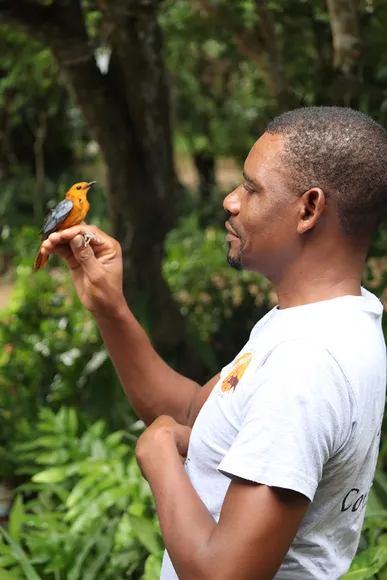
earth watch
Forty years of The Rock

Simon Marsh
Forty years ago, in southern Portugal, an unlikely new Christian venture began. Two Christian couples from the UK founded a centre in an old farmhouse in the Algarve to put into practice the Christian call to care for creation.
Nobody had done anything like it before. A Rocha (Portuguese for ‘The Rock’) is a welcoming, cross-cultural Christian community with a focus on science and research, practical conservation and environmental education. You can read the full story in Peter Harris’ Under the Bright Wings, which inspired me to visit in the 1990s and remain involved ever since.

earth watch
The toll of roads – on us

Simon Marsh
Do you remember noticing more birdsong during the Covid lockdown? You weren’t imagining it.
Scientists who were studying the impacts of traffic noise on the songs of urban white-crowned sparrows in San Francisco found that their songs – normally louder, higher-pitched and less complex – reverted to the quieter, lower and more complex songs of their rural cousins, and could be heard more than twice as far.
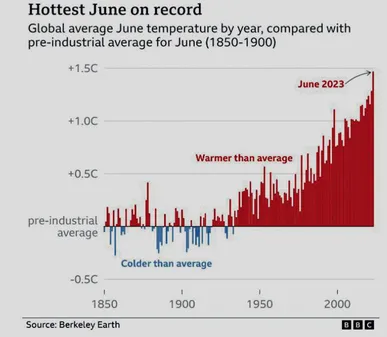
earth watch
Hot, hot and hotter still

Simon Marsh
It’s that time of year again. I didn’t plan it this way, but each year as I write September’s column, the news seems to be full of heatwaves, drought, floods and fires.
Here are four global climate records that have been broken this summer which should concern us.
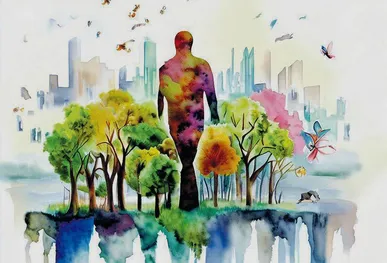
earth watch
The great disconnect

Simon Marsh
Recently it’s been a delight to welcome some children from our church family to help on the allotment.
There’s nothing like digging up worms when you’re six years old, or watering young plants in the hot weather (I’m referring to the lettuce, not the children). As I’m sure every parent knows, getting children out into nature is good for them. It really isn’t just clever advertising by the makers of washing detergents.
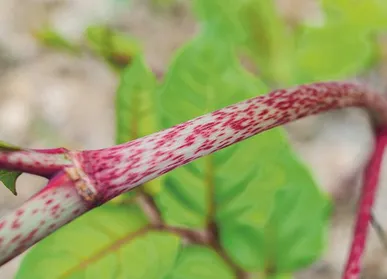
earth watch
What’s in your garden?

Simon Marsh
From the DNA in our bodies to far-distant galaxies, Creation is amazing, incredibly diverse and complex.
The same is true just for the variety of wild plants and animals on the Earth, which scientists call biodiversity. The relationships between species are part of what makes biodiversity so fascinating, with flora and fauna designed to play unique and specific roles in different habitats like woodland, grassland, or the oceans.

earth watch
Rivers of filth are flowing

Simon Marsh
Is cleanliness next to godliness? Apparently, this phrase may have originated with John Wesley who thought that being a Christian was no excuse for slovenliness.
Although many of us took great care with cleanliness during the pandemic, these days we don’t naturally associate hygiene with being a Christian, despite all the Old Testament laws on cleanliness. Maybe we’re all too aware of Jesus’ condemnation of the Pharisees who were obsessed with the ritual hygiene laws, and have rightly taken to heart the importance of being spiritually clean. Pharisee alert over, that doesn’t mean we should neglect matters of personal or domestic hygiene.
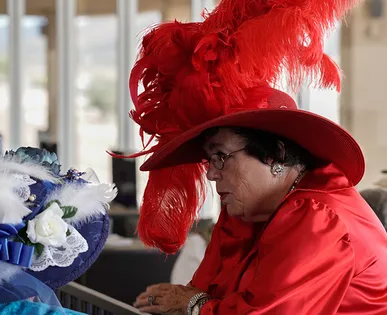
earth watch
Feather-brained folly?

Simon Marsh
If you look round a typical Sunday congregation, I suspect you won’t see many women wearing hats.
Although you would never have seen my granny in church without a hat, with changing fashions, and perhaps a more relaxed interpretation of 1 Corinthians 11: 13, it’s a rare sight other than at weddings. But in the 1880s hats were de rigeur for women, and the latest millinery fashion that was storming polite society was hats with feathers. Feathers of birds like grebes and egrets, and in more extreme cases even whole birds, adorned voluminous headgear in late Victorian and Edwardian society.
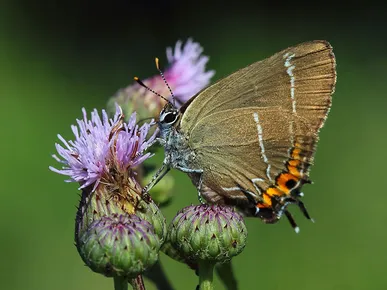
earth watch
Hairstreaks and habitats

Simon Marsh
One of my simple pleasures in life is going for a walk in a bluebell wood in Spring. It’s something I really missed when living in Africa, and during lockdown, so we try to make an annual pilgrimage to a local wood.
We pick a time when the wood is covered with a blue carpet of flowers, together with pale yellow primroses and white wood anemones. It’s a joyful Creation experience.
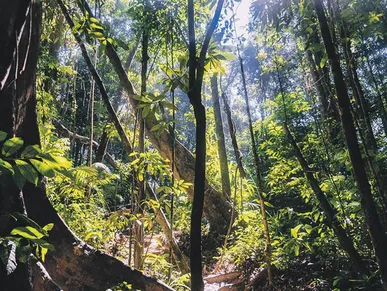
earth watch
Biblical biodiversity?

Simon Marsh
In December last year, the much-delayed UN Biodiversity Conference (COP15) finally took place in Montreal, Canada (see November’s en).
After nearly two weeks of intensive talks, representatives of 188 governments approved a new set of goals to guide global action up to 2030 – to halt and reverse nature loss. This agreement rejoices in the snappy title of the Kunming-Montreal Global Biodiversity Framework.
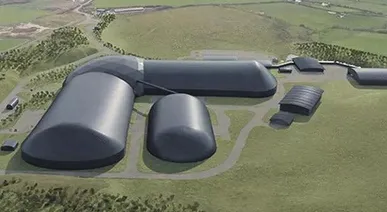
earth watch
Cumbrian coal mine

Simon Marsh
A few weeks before Christmas, controversy exploded in the environmental world when the government gave planning permission for a coalmine in Whitehaven, Cumbria. It would be the first new coalmine in the country in 30 years.
Now the UK would not be what it is today without coal, a bountiful source of concentrated energy which has been exploited since Roman times. Plentiful supplies powered the Industrial Revolution and led to the creation of close-knit mining communities from the South Wales Valleys to the Clyde.

earth watch
Resolutions revolution

Simon Marsh
January is traditionally the time of year for making resolutions. Why don’t you make some which are good for creation?
Here are ten things you could do for the planet in the next 12 months. They’re not in any particular order; some I’ve touched on in previous articles, some I haven’t.
earth watch
Since 1970: 69% gone!

Simon Marsh
One of my favourite children’s books is Nick Butterworth and Mick Inkpens’ Wonderful Earth!
It’s a joyous and beautifully illustrated celebration of the wonder and diversity of creation. And sometimes creation is just gloriously weird; who could forget creatures such as the football fish, the weedy seadragon or the pink fairy armadillo? Wonderful Earth! is in part an imaginative reworking of Psalm 104, which celebrates the greatness of the Creator and His creation. There are wild donkeys quenching their thirst from mountain streams, cedars of Lebanon where the birds nest, hyraxes taking refuge in the crags, lions roaring for their prey and Leviathan frolicking in the vast sea, which teems with creatures beyond number.

earth watch
Eight million threatened

Simon Marsh
What do Glasgow, Sharm El Sheikh, Kunming, and Montreal have in common? Shipbuilding cities? Exotic holiday destinations? Which is the odd one out, and why do they matter to the future of the planet?
You may remember the UN Climate Change Conference in Glasgow last year. The follow-up conference will be taking place shortly in the Egyptian resort of Sharm El Sheikh where there will be an assessment of whether countries are doing enough to tackle climate change (almost certainly not, according to the independent think tank Chatham House).
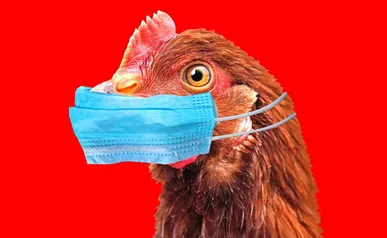
earth watch
Avian flu: what should I do?

Simon Marsh
I once saw a question on the popular gameshow Pointless where the contestants had to identify a seabird with four letters, _ k_ _. It’s not a common bird so I wasn’t surprised that no-one got it, but the answer was skua, or to be more precise the great skua, Stercorarius skua.
They are large and rather thuggish seabirds which breed mostly on Scotland’s coasts and islands. In fact, Scotland is home to more than half their world population.

earth watch
What will you do to adapt?

Simon Marsh
What did you do to stay cool this summer?
By the time you read this, I hope we’ll be heading into somewhat cooler weather, but at the time of writing, we’ve just experienced the hottest temperatures ever in the UK.

earth watch
To fly or not to fly?

Simon Marsh
The
summer holidays are here and
I
hope that, whatever you’re planning, you
manage to have a really good break. If
you’re heading abroad, as I will be soon,
the chances are that you’ll be flying to your
destination.
Before Covid, UK residents made over 58
million holiday visits abroad a year. There
were almost 300million air passengers at UK
airports. In the past couple of years during
the pandemic these numbers crashed, but as
restrictions have eased, and recent chaos at
UK airports shows, people can’t get enough
of flying abroad on holiday or to see family
and friends.

earth watch
Godly gardening

Simon Marsh
In the UK, we are a nation of garden lovers. We may not be Capability Brown, or even Monty Don, but two and a half million of us watch ‘Gardener’s World’ every week.
There are 23 million gardens in the UK, which if put together cover an area of a million acres, roughly one-fifth the size of Wales. That’s more than all our national nature reserves put together.
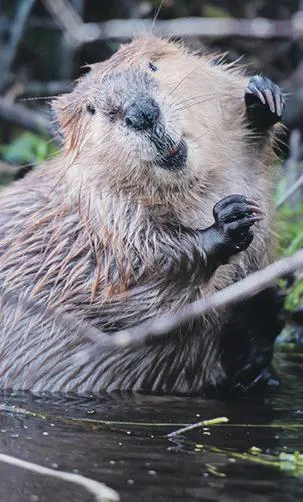
earth watch
A story of hope

Simon Marsh
It’s easy to get overwhelmed by the enormity
of the climate and ecological crisis.
‘Eco-anxiety’ may not be a medically-recognised condition, but
it’s
something
many people can relate to, especially if they
care deeply about
the natural world. It’s
important for Christians not only to share
the hope we have in Jesus Christ, but stories
of hope we can experience
in the world
about us. Indeed,
secular communicators
recognise that always harping on about the
bad stuff only puts people off taking action,
and so organisations working to care for
creation need to tell positive stories (while
not ignoring the bad news).
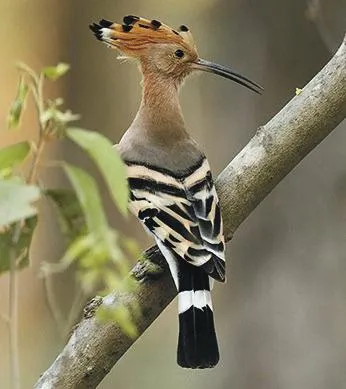
earth watch
The mysterious hoopoe

Simon Marsh
There are some parts of the Bible which
provoke questions
that are clearly not
essential for salvation.
The sort that, if mentioned in passing by
a preacher, would distract me from the main
point of the sermon, almost as if I spotted an
extremely rare bird out of the window.

earth watch
Spotting climate error

Simon Marsh
Do you have an EV? No, that’s not shorthand for an Evangelical or even a new English translation of the Bible, it’s an Electric Vehicle.
My recent purchase of an EV has got me pondering, in a strange sort of way, the importance of truth when it comes to creation care.
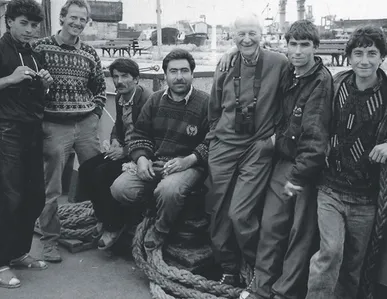
earth watch
Destructive dominion

Simon Marsh
For many years I’ve run a lunchtime weekly Bible study in my workplace. Even though at times it’s felt a challenge to squeeze it in between all the other work meetings, it has been a blessing to meet regularly (at least by videocall) with other Christians who also work in my organisation.
We’ve been working our way through Luke’s Gospel and we recently came to Luke 12: 6-7: ‘Are not five sparrows sold for two pennies? Yet not one of them is forgotten by God. Indeed, the very hairs of your head are all numbered. Don’t be afraid; you are worth more than many sparrows.’ Jesus makes a similar point a few verses later about ravens.
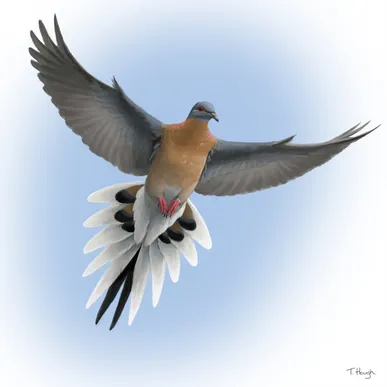
earth watch
Birds on a high wire

Simon Marsh
In recent months, while the world’s attention has been on what we’re doing to the climate, it’s easy to lose sight of the fact that – even aside from climate change – the rest of creation’s in a bad way as well.
We don’t always realise this. Over the last few decades we’ve been fed a diet of Attenborough documentaries which show an amazing world, but one seemingly untouched by human hand. Only recently this has begun to change. Scientists refer to the ‘shifting baseline syndrome’ as each successive generation of people accepts the world they see around them as normal, without realising how much nature has been lost in the past.
earth watch
Creation’s hope: Christ

Simon Marsh
What happened at COP26?
At
the
beginning
of
November,
delegates from every nation
in the world
arrived
in Glasgow
for COP26, the UN
conference on climate change. COPs (in
full, the Conference of the Parties to the
UN Framework Convention on Climate
Change) happen annually but the big ones
are every five years or
so. COP26 was
particularly critical, being
the first major
gathering since the Paris Agreement in 2015;
the first test of whether countries would live
up to their promises on climate change.
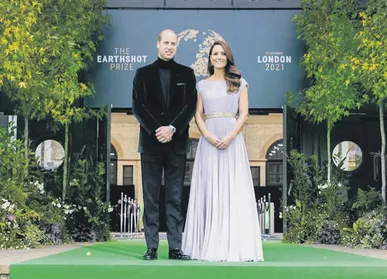
earth watch
After COP26: eco-anxiety?

Simon Marsh
What keeps you awake at night? Perhaps it’s the threat of coronavirus. When I was a teenager, it was the threat of nuclear armageddon that made me anxious.
These days it’s ‘eco-anxiety’ that’s likely to be a worry, especially for children and young people. Eco-anxiety is the chronic fear of environmental doom; it’s not a medical diagnosis, but according to the British Medical Journal, reported in the Guardian, recognition of eco-anxiety and its complex psychological effects is increasing, as is its disproportionate impact on children and young people. According to the same report, a 2020 survey of child psychiatrists in England showed that more than half (57%) are seeing children and young people distressed about the climate crisis and the state of the environment.

earth watch
Would you break the law?

Simon Marsh
Have you ever been on a protest march?
I’m not a natural protester, although there have been a couple of occasions when I joined a climate march. Most recently (before the pandemic) it was in support of a youth climate march in Cambridge. It ended on King’s Parade where many of the marchers lay down on the lawn in front of King’s College. I confess that my respect for authority was such that I kept off the grass.
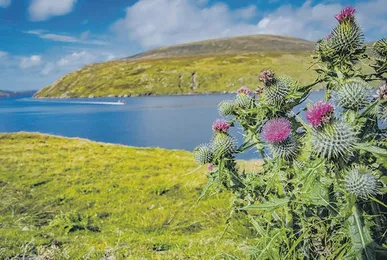
earth watch
Weeds and wildness

Simon Marsh
Every farmer and every gardener knows the curse of weeds. Only this morning as I was at the allotment, I could not believe how quickly the weeds had grown since my last visit, undoing all my hard labour.
We read in Genesis 3:17-19 about how thorns and thistles were part of God’s curse for Adam’s disobedience. I don’t believe that thorns and thistles sprang into existence as a result of the Fall, it’s more that farming became toilsome and burdened by them as humanity attempted to fulfil God’s command to ‘fill the earth and subdue it’ (Gen 1: 28). Even thorns and thistles have their place in the scheme of Creation; for example, thistles are a source of nectar for insects, their seeds are loved by goldfinches and their leaves are food for the caterpillar of the painted lady butterfly.

earth watch
Record-breaking climate

Simon Marsh
The British are notorious for talking about the weather. It’s little wonder given that we live on an island which is subject to constantly changing weather systems. In last month’s column I talked about how ready the UK is for a changing climate, and how we are already experiencing hotter, drier summers but also more intense summer rainfall.
No sooner had I emailed my article to en than the world experienced a series of weather extremes which perfectly illustrated this point, so I make no apologies for returning to the subject.
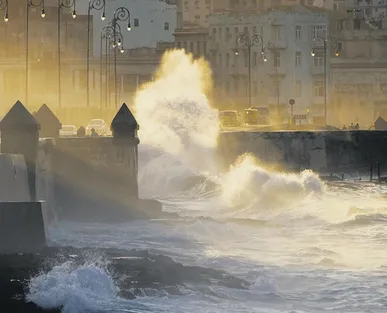
earth watch
Are you ready for the future?

Simon Marsh
Are you ready for the future? Pose that question to a Christian and I guess they will immediately start thinking of getting ready for the return of the Lord Jesus – a good reaction to have, but not quite what I had in mind. Let me put it this way: before that day comes, are you ready for the planet’s future?
I work in nature conservation, but I’m also a chartered town planner (yes, it is a slightly weird combination, but that’s another story). Town planners are in the business of looking to the future. They make plans for ten or 20 years ahead and even longer. It’s an uncertain endeavour. They have to carefully look at the evidence before making decisions, but also build in flexibility and regular review.

earth watch
Climate justice: for the good of all creation

Simon Marsh
‘What do we want? Justice! When do we want it? Now!’
People seeking justice of one kind or another rarely seem to be out of the news these days. Christians should be discerning about which causes we support, but ultimately God is a God who loves justice and who wants us to do the same. As the prophet Micah says: ‘What does the Lord require of you? To act justly and to love mercy and to walk humbly with your God.’ (Mic.6: 8). We should love, care for and support anyone suffering from genuine injustice.
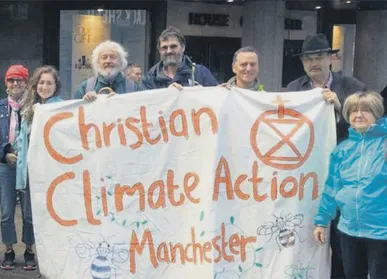
earth watch
Sentiment or action?

Simon Marsh
The sad death of HRH Prince Philip in April sparked many tributes to his lifetime of public service.
As well as being the world’s self-confessed expert in plaque unveiling, Prince Philip had a long-standing interest in nature conservation, long before it was fashionable. Others have documented his interest in birdwatching, his friendship with the naturalist Sir Peter Scott, and his long association with the World Wildlife Fund (WWF) as president of the UK organisation from its founding in 1961.
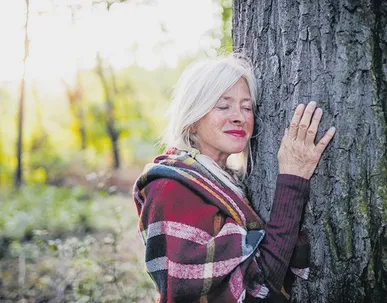
earth watch
Should Christians be tree-huggers?

Simon Marsh
Many years ago, when I was working in Africa, I had wonderful opportunities to go on safari and see some amazing wildlife.
Lions, elephants, giraffes; all the creatures you would expect to see, and more. But at that time, one of the things that made me most homesick was a yearning to walk in an English wood in spring, among the bluebells and the birdsong. I’ve tried to do that every year since returning to the UK, although I missed it during last year’s lockdown: it’s one of the things I’m looking forward to as things open up again.
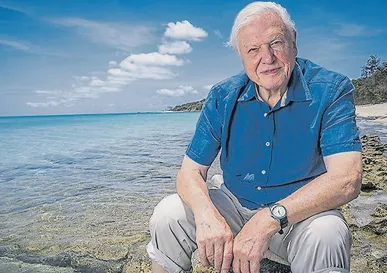
earth watch
Attenborough’s sin summary

Simon Marsh
One swallow doesn’t make a summer, so the saying goes. But it does mean that spring is here, and when you read this you might even have seen the first swallows arriving in Britain on the end of a long journey from their wintering grounds in southern Africa.
Swallows do not appear to be very strong or direct fliers (see Proverbs 26:2 for a Biblical observation on this), so their long-distance migration is a remarkable feat of endurance.
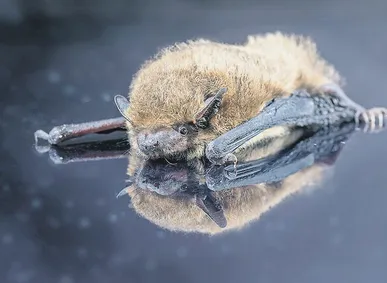
earth watch
Bats in the belfry

Simon Marsh
Do you have bats in the belfry? I mean that literally although, despite their love for hanging out in old church buildings, most bats find belfries too noisy and draughty.
Bats are some of those creatures which provoke strong emotions and illustrate the tensions that can arise between caring for God’s people and caring for the rest of God’s creation.
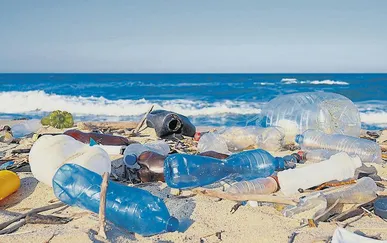
earth watch
Plastic-less living?

Simon Marsh
Plastic. It’s hard to imagine the modern world without it.
It’s in virtually every consumer product conceivable, from clothes to computers and cars and much else. It’s almost ubiquitous, yet it’s only been around for little more than a century. The Belgian chemist Leo Baekeland invented Bakelite, the first fully synthetic plastic, in 1907. Bakelite and other plastics are a tribute to God-given abilities to invent useful stuff.

earth watch
Disposable planet?

Simon Marsh
What do you
think creation
is
looking
forward to in 2021?
Barring the Lord’s return, this could be
a significant year for the planet. Of course,
people long for an end to the coronavirus
pandemic. My guess is that most of creation
is
longing
for humans
to get
their act
together in caring for creation.
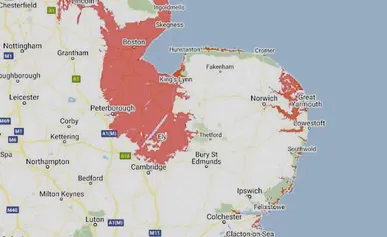
earth watch
Rising sea levels: what’s the truth?

Simon Marsh
Where I live in the former county of Huntingdonshire is a long way from the sea. But according to some predictions of sea-level rise, it could be a lot closer soon.
In one scenario, with widespread inundation of the Fens, Cambridge could virtually become a coastal city by 2050. London, Cardiff, Blackpool and Hull could all be severely affected. Scenarios like these are alarming and make great media headlines, but what is really going on?
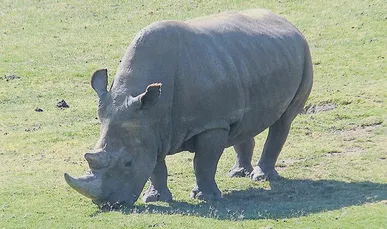
earth watch
How do you feel when God’s world is abused?

Simon Marsh
I must admit, I like a good steak (medium rare, please), especially on a special occasion.
Food is a central part of our lives, and for Christians, sharing it together can be an important act of hospitality (Rom. 12: 13). Yet the simple act of eating raises all kinds of ethical and environmental issues. It’s worth asking ourselves where our food comes from.
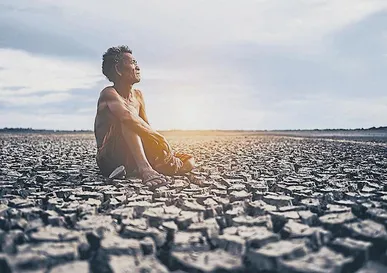
earth watch
Climate ‘crisis’? Really?

Simon Marsh
Recently the Environment Minister for Northern Ireland, Edwin Poots, got into a spot of bother for saying publicly that his department didn’t believe there is a climate crisis.
He later retracted his words and his chief civil servant had to apologise for giving the minister a misleading briefing. He really does think there’s a climate crisis, a view also shared by governments and many local councils across the country who have declared a ‘climate emergency’. So that’s all right then.
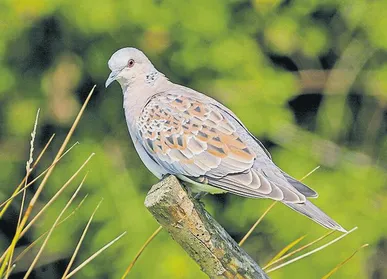
earth watch
Nature in lockdown!

Simon Marsh
How has
lockdown been
for you? The
coronavirus pandemic has affected virtually
every aspect of our lives. Christians have
rightly spent much time discussing when
and how we will be able to meet face-to-face
again for worship.
While most of us were stuck at home
though, many
people
had
a
renewed
appreciation of the nature all around us.
In the absence of traffic noise, we noticed
how loud the birdsong is. Our local parks
and green spaces took on a new importance
for our daily exercise. At the end of every
working day my wife and I would walk
through
the meadows near our house,
enjoying the beauty of creation in a way that
perhaps we didn’t before.